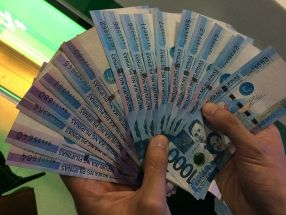VAT zero rating incentive for the renewable energy sector
Due to the pressing concern of climate change, investments in renewable energy (RE) is now an ever-growing opportunity in the Philippines. Activities under the Renewable Energy Act are regularly included in the country’s Investment Priorities Plan for entitlement to benefits and privileges.
Some fiscal incentives of RE projects include income tax holiday, exemption from duties and zero percent value-added tax (VAT) rate, among others. But while guaranteed under the law, procedures for claiming the incentives are not without any challenges.
The recent case of CBK Power Company Limited vs. Commissioner of Internal Revenue (CTA Case No. 8784, Feb. 23), (“CBK Case”) is instructive in this light. In this case, the Court of Tax Appeals (CTA) First Division, through Associate Justice Cielito Mindaro-Grulla discussed a notable point on claiming VAT refund by RE developers for their sales of electricity generated through hydropower. The petitioner in the case is a special purpose entity engaged in the operation, maintenance, management and ownership of the hydroelectric power plant. A claim for refund of unutilized or excess creditable input taxes was filed by the petitioner, attributing the same to its zero-rated sales of electricity generated through hydropower and its purchase of local supply of goods, properties and services needed for the development, construction and installation of its plant facilities.
In resolving the issue, the CTA discussed in detail the entitlement of an RE developer to a zero percent VAT by applying the pertinent provisions of the National Internal Revenue Code (NIRC) in relation to the Renewable Energy (RE) Act and its Implementing Rules and Regulations (IRR). The NIRC provides that sale of power or fuel generated through renewable sources of energy is among the transactions subject to zero percent VAT. As to petitioner’s purchase of local supply of goods, properties and services needed for the development, construction and installation of its plant facilities, the CTA ruled that such transactions are likewise zero-rated pursuant to the general incentives granted under the RE Act and its IRR.
The CTA disallowed the refund and explained that the petitioner’s claim for input VAT refund against the BIR is not the proper recourse of an RE developer. This is due to the fact that a zero-rated transaction depicts that no output VAT will be passed on to and paid by the RE developer, therefore, the RE developer is not entitled to refund, or issuance of tax credit certificate from the said purchases. Instead, the RE developer, who is also the buyer in a zero-rated sale, can seek reimbursement of the VAT paid from its supplier. In other words, the proper recourse of an entity entitled to a zero-rated transaction is not against the government, but against the seller who shifted to it the output VAT. To hold otherwise can result in undue enrichment at the expense of the government.
Entitlement of RE developers to VAT zero-rating and other fiscal incentives is a procedural consideration as much as it is a substantive concern. As a substantive matter, RE developers must meet the definition provided under the Renewable Energy Act which states that an RE developer must be an individual/group of individuals, formed in accordance with existing Philippine Laws, engaged in the exploration, development and utilization of RE resources and actual operation of RE systems/facilities. The IRR of the RE Act further qualifies an RE developer to include entities engaged in the exploration, development and/or utilization of RE resources, or the generation of electricity from RE resources, or both. To be entitled to fiscal incentives such as VAT zero-rating, an RE developer must be able to prove that a particular activity or transaction falls under the relevant provisions of the law. The recognized activities for VAT zero-rating include:
1.) Sale of fuel from RE sources or power generated from renewable sources of energy.
2.) The whole process of development of RE sources up to its conversion into power, including, but not limited to services performed by subcontractors and/or contractors.
3.) The RE developer’s purchase of the local goods, properties and services needed for the development, construction and installation of the plant facilities of the RE developer.
Note that it is important to prove that the purchases are to be used for the development, construction and installation of the RE developer’s plant facilities, otherwise, there can be no entitlement to incentives under the law.
As regards procedural aspects, the RE developer must comply with certain conditions in order to avail of incentives and other privileges. This means that RE developers, as well as manufacturers, fabricators and suppliers of locally-produced RE equipment must first be registered with the Department of Energy (DOE) through the Renewable Energy Management Bureau (REMB) to avail of the incentives granted by law. Other conditions mentioned are registration with the Board of Investments (BOI) and securing a Certificate of Endorsement from the DOE on a per transaction basis. Other government agencies, such as the Bureau of Internal Revenue (BIR), may also promulgate revenue regulations to facilitate the procedure in availing VAT zero-rating incentives. As of the moment, however, registrations with the BOI and DOE, and the issuance of the aforementioned certifications are the only requirements that are clearly prescribed under the law.
Although entitlement of RE developers to incentives is guaranteed under pertinent laws and regulations, it appears that the procedure in fully availing of the privileges necessitates more than just a substantive requirement. In all cases, issuing well-defined procedures by all concerned government agencies can create a more welcoming opportunity that will attract potential investors.
Lawyer Glory Grace J. Arugay is a supervisor from the tax group of KPMG R.G. Manabat & Co. (KPMG RGM&Co.), the Philippine member firm of KPMG International. KPMG RGM&Co. has been recognized as a Tier 1 tax practice, Tier 1 transfer pricing practice, Tier 1 leading tax transactional firm and the 2016 National Transfer Pricing Firm of the Year in the Philippines by the International Tax Review.
This article is for general information purposes only and should not be considered as professional advice to a specific issue or entity.
The views and opinions expressed herein are those of the author and do not necessarily represent the views and opinions of KPMG International or KPMG RGM&Co. For comments or inquiries, please email [email protected] or [email protected].
- Latest
- Trending































